Average sizes and life expectancy for this breed:
Devon Rex, best known as the Pixie of the Cat Fancy, is charmingly silly in both looks and antics. This cat breed is interested in everyone and everything around them. Their playful demeanour means they can learn tricks easily and are always up for a game of fetch, hide-and-seek, or tag.
This unique cat breed is loyal and human-loving with dog-like characters. Their human companion must be prepared to be owned by a Devon Rex, not the other way around. This cat will eat and sleep with you. They may even perch comfortably on your shoulder while reading or while you are on the computer. They will follow you around the house from room to room, sit at your feet, or jump on your lap as you relax on the couch.
A Devon Rex will accompany you on your household chores, happily cooing, trilling, and chirping. Children and Devon Rex are natural best pals and all family members will often find a Devon Rex cradled in their arms or nestled in their laps. Also, you don’t be surprised to find your Devon Rex tucked in bed with you or another family member cuddled underneath the sheets or comfortably settled on a pillow.
Devon Rex remain kittens at heart until they grow old, and their affectionate nature associates them deeply with every family member. However, the amicable, devoted, and people-oriented personality of the Devon Rex makes them unsuitable to spending long periods without human companionship.
See available kittens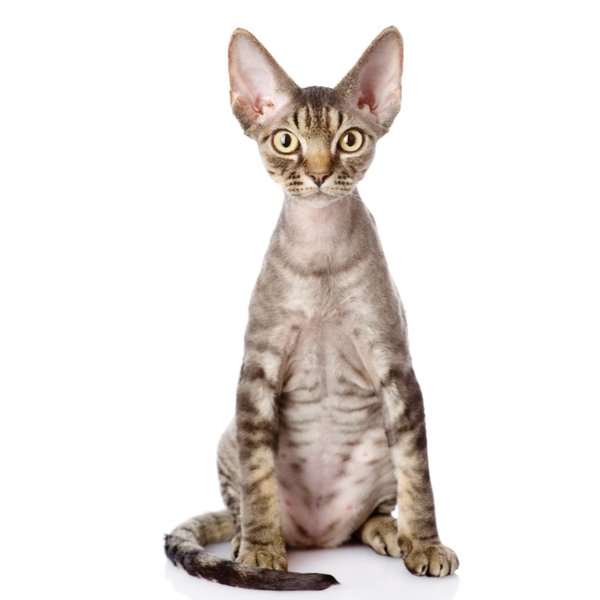

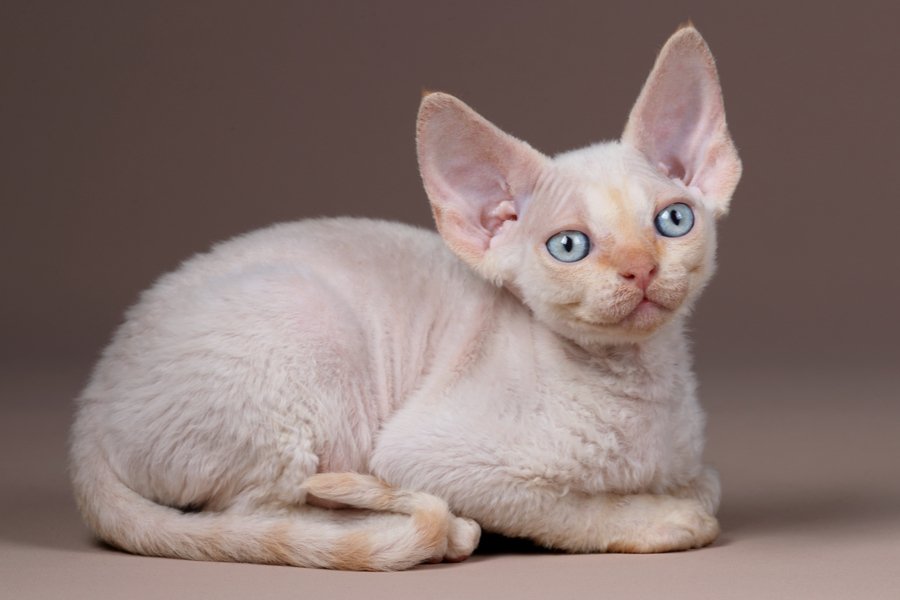


The Devon Rex's ancestral home is Buckfastleigh, Devon, England, where a feral cat with a curly coat lived in an abandoned tin mine. This tortie and white stray cat was adopted by Miss Beryl Cox and had a litter of kittens with the feral tom in 1960.
One of their kittens was a brownish-black male with a coat just like his dad. Miss Beryl kept this particular kitten and named him Kirlee. Aware of Kallibunker, who is the first Cornish Rex, and the efforts to preserve that new gene, she wrote to Mr. Brian Sterling-Webb, thinking her cat, Kirlee, could contribute to that breeding program. It turned out that the gene producing Kirlee's curly coat was distinct from the one producing Kallibunker's marcelled waves.
There were several differences in the coat between Kirlee and the Cornish Rex Kalli. While Kalli had whiskers that were curled and bent, Devon Rex's gene resulted in stubby or missing whiskers. Kirlee had tight curls but not as uniform as those of the Cornish Rex, giving them a windblown look. Moreover, Devon Rex cats have huge, low-set ears giving their head a pixie-like appearance emphasised by their large, curious eyes and short nose.
Cat breeders began developing a program to preserve the gene discovered in Devon as well. The gene discovered in Cornwall was designated Gene 1, while the one discovered in Devon Gene 2. Brian Sterling-Webb now worked to preserve this gene as well, along with Mrs. Madge Shrouder and Mrs. Agnes Watts. All Devon Rex cats trace their ancestry back to the cat Kirlee who was unfortunately killed in a car accident in 1970.
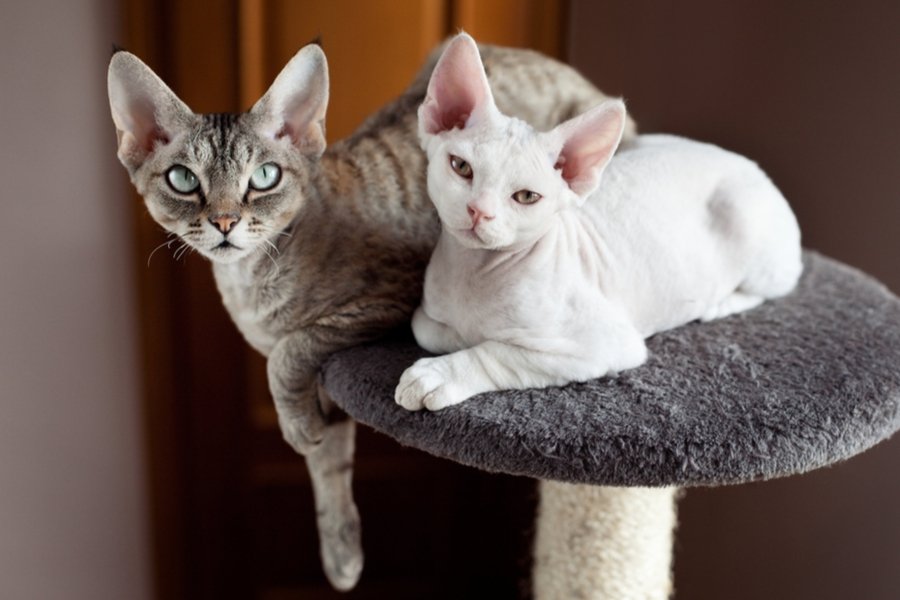
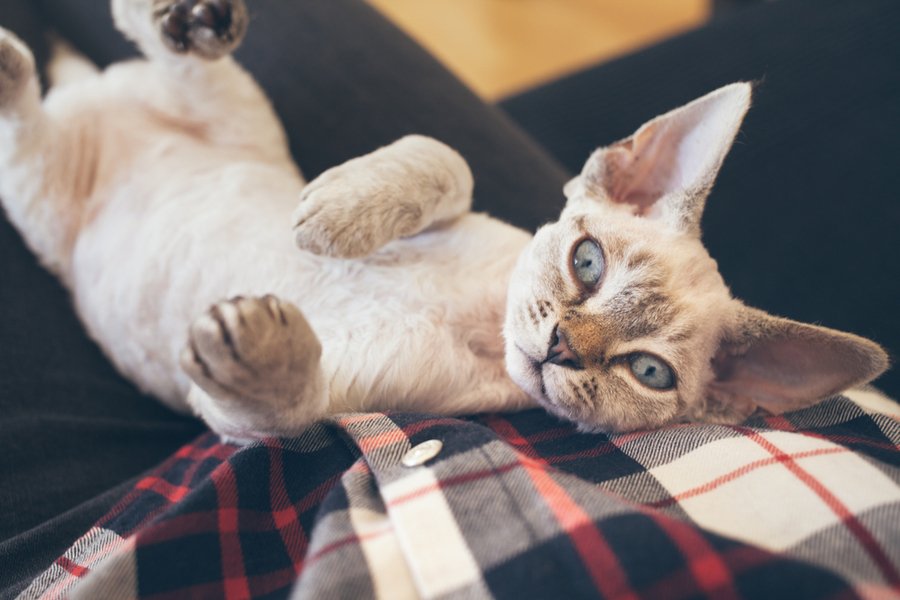
Devon Rex cats are small to a medium-sized with a sturdy and muscular body and hind legs that are longer than their forelegs. They also have a modified wedge-shaped head with large, curious eyes, a short muzzle, broad cheekbones, and a strong chin. Their large ears are low set. Their compact, supple body is covered with curls and loose waves.
Devon Rex cats are well-muscled, weighing on average from 2.27 – 4.08 kilograms, with males being heavier than their female counterparts. Their short, soft, curly coats differ from cat to cat. The standard show coat is an even, full coat of loose curls, and for individual cats, coats ranging from thin suede-like coats to a tousled mop of curls. Some Devon Rex cats may have virtually bare patches as well.
Their coats often change throughout the life of the cat too. During shedding season, their hair will frequently break off, so no curl is visible until the new fur grows back. Devon Rex kittens also go through this stage.
One of the surprising things when you pick up a Devon Rex cat is how warm they are to touch. They feel like soft hot water bottles, which make them ideal for cuddling up to in winter. While Devon Rex cats have the same body temperature as the other cats, their unique coat does not provide as much insulation as other cats’ coats do. So, they feel warmer. As they can get cold easily, they love hot spots, so you will find them basking in the windows or in other warm places, like the top of the television.
Contrary to popular opinion, the Devon Rex does shed just like all other cat breeds, but the structure of their coat makes the shedding less prominent. For some reason, there is a notion that this cat breed is hypo-allergenic. But they do produce allergens like other cat breeds. Some people who are allergic to cats are able to endure Devons, but others are not, probably because it depends on their personal allergies. If you happen to be allergic to cats and are considering having a Devon Rex, it is best to make arrangements to spend some time in their company before acquiring one.
The Devon Rex is smart, playful and energetic. They are very spirited and want to participate in everything. They are also powerful jumpers, so no spot goes unexplored. Expect to find your Devon Rex perching on top of doors or climbing to unexplored areas. This cat breed remains kitten-like even in adulthood.
Devon Rex are very people-oriented. They will perch on your shoulder while you cook supper, curl in your lap while you relax in front of the TV, or snuggle under the sheets to sleep with you at night. Because of this, these active cats thrive in a busy household. However, they should not be left alone for long hours as they can become mischievous if bored.
This exceptional cat breed is intensely loyal, affectionate, and has dog-like qualities. If you plan to own one, you must be prepared to lose your privacy. This loving cat will eat with you, read the newspaper with you and sleep with you. They will follow you around the house and will accompany you and “help” you with your household chores.
Devon Rex can be found, if not playing, cradled in their human companion’s lap or arms. They love being tucked in bed with you, using your covers and pillows for their comfort. Still, despite being super social, Devon Rex are not particularly talkative. However, they do chirp when they feel like they need you to check on something that has captured their interest.
Because of their deep affection and connection with their families, it is not ideal to leave Devon Rex alone for long periods without a companion. If they are left alone for long, they can become mischievous if bored. Whether a two-legged or four-legged companion, they do well with people, other cats, cat-friendly dogs, and even birds, rabbits or ferrets.
Watch out, though; Devon Rex are food hounds. Be prepared to guard your plate against the swift and smart Devon Rex as they will find ways to get your food. They have a good appetite, they never turn down a meal and are always happy to help you finish yours.
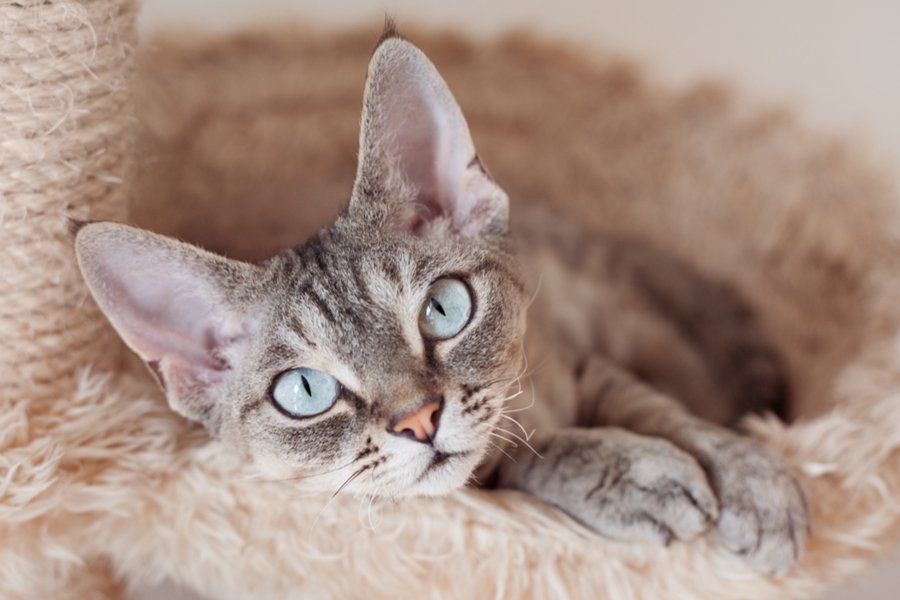
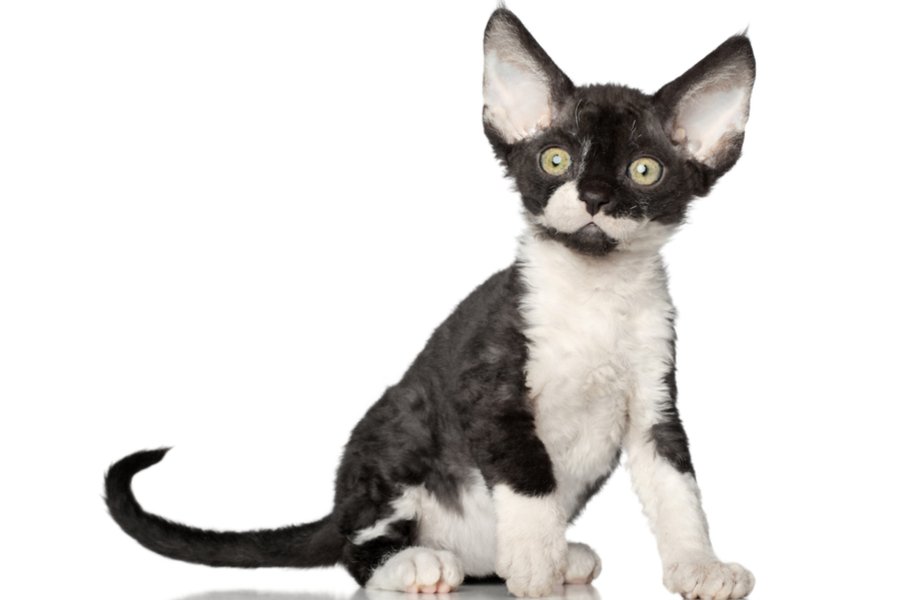
The Devon Rex is a very trainable cat. They are eager to learn and are quite intelligent. Whether it is obeying commands, playing puzzle games, or learning new tricks, this fun-loving cat breed will be engaged and attentive. Challenge their smart minds and keep them attentive. Give them many puzzles and interactive toys that they can play with alternately.
These social and good-natured cats are gregarious and affectionate and will do everything for human attention and interaction. When this cat breed is properly socialised and trained at an early stage, they will blossom into a well-rounded and well-mannered feline companion.
Their wavy coats are easy to care for and maintain. Groom them softly, so you do not break their delicate hairs. In many cases, brushing your hand all over their coat is enough. The best thing about their coat is that it does not shed that much, and their fur is so fine that it is not very visible on clothing and furniture.
While the Devon Rex needs little grooming, you can still train them to be brushed to keep their coats healthy and in tip-top condition. Start by using a very soft brush so it won’t pull or break their delicate fur and their skin. Encourage them every grooming session by giving them small treats if they behaved well.
Ideally, brushing their teeth daily is best; however, weekly brushing works is enough to help prevent tooth and gum diseases. For their nails, trim them twice a month or when needed. To keep their eyes clean and healthy, wipe the corners weekly with a clean, soft, damp cloth to remove any dirt or discharge. Make sure to use a different part of the clean cloth for each eye to avoid any infection.
Use a clean cotton ball or soft, damp cloth and a vet-approved ear cleanser to clean their ears each week. This will eliminate dirt, debris and wax to ensure their ears don’t develop any infection. If you notice a foul odour, immediately contact your vet for care and treatment.
Like many other cat breeds, Devon Rex are very particular about their bathroom hygiene. So, make sure to keep their litter boxes clean. If it is left unclean, they tend to use other places in the house.
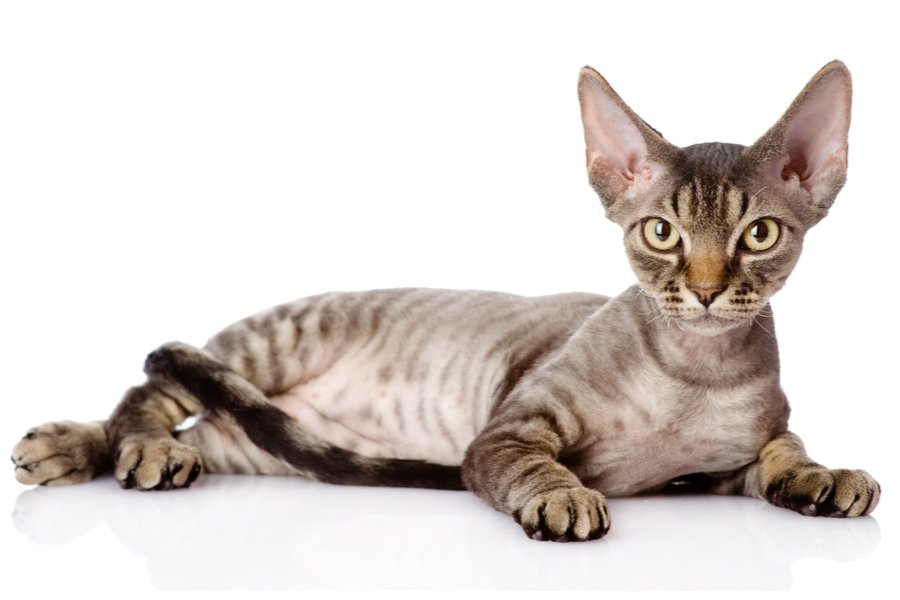
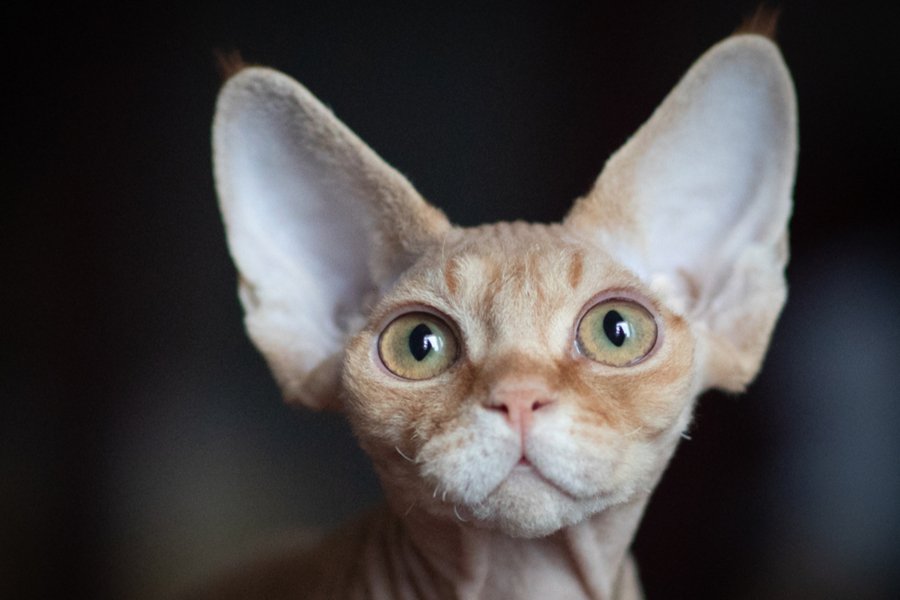
Devon Rex are generally a healthy cat breed but there are a few genetic health concerns you should be aware of.
To ensure your Devon Rex is as healthy as can be, only buy from a trusted and registered breeder who runs DNA checks on their cats. Seeing proof of these health checks will put your mind at ease that they have no genetic health conditions. With proper care and high-quality, age-appropriate diet and exercise, their life expectancy is between fourteen to seventeen years.
Also note that their lack of hair means their skin can get greasy easily, making it sensitive and itchy. This can lead to yeast infections such as Malassezia dermatitis and other dermatological issues like Urticaria pigmentosa, which causes crusty sores on their body. However, these conditions are not life-threatening and can be treated easily with medication.
Due to their intelligence, playfulness and affectionate nature, Devon Rex cats are excellent for families with children and other pets. This cat breed and your child can be best pals as they can tirelessly play all day. Just make sure to supervise younger kids to avoid any accidents like the child pulling the cat’s fur or twisting its tail.
These cats get on great with other cats, especially their kind and cat-friendly dogs. But make sure to introduce pets slowly and in controlled environments to make sure they learn to get along well together.
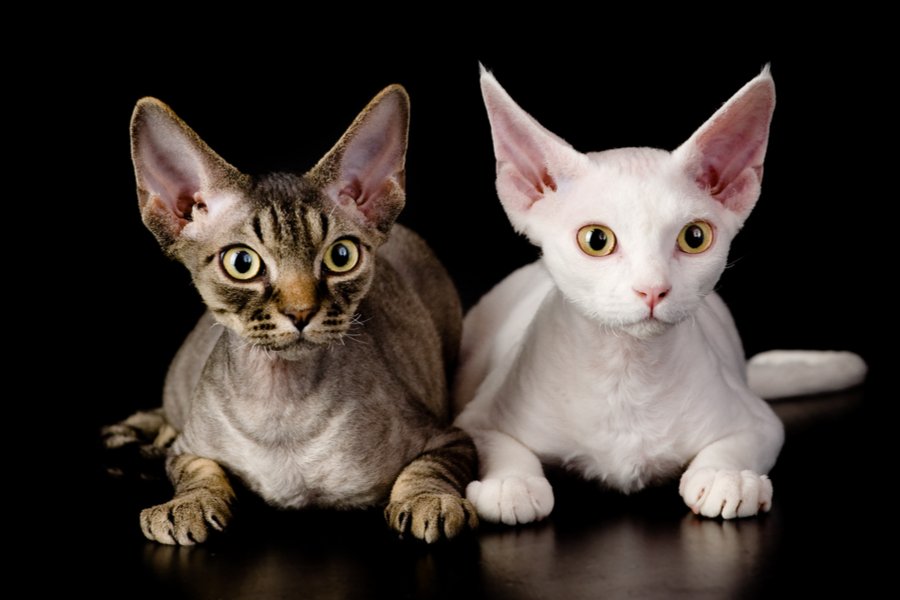
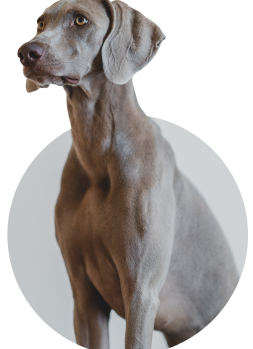
We can connect you with Breeders that are specialized in this particular breed.
See available kittens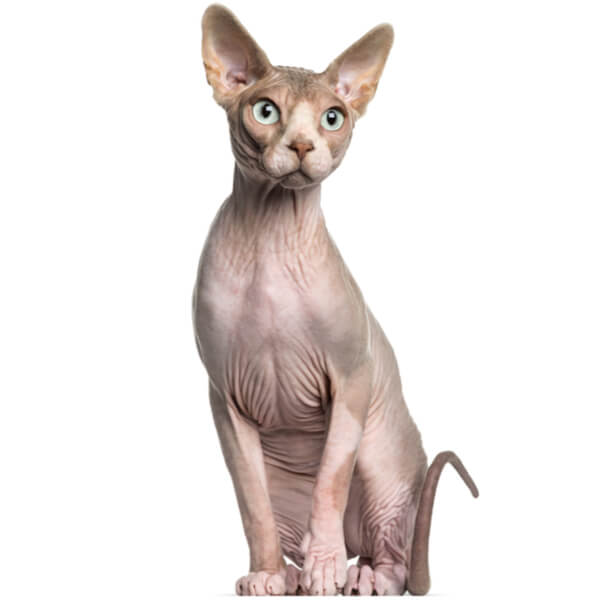
Canada
Size : Medium
Coat : Hairless
Registration : GCCF, TICA, CFA, FIFe
Vocality : High
Hypoallergenic : Yes
Grooming : Once a Week
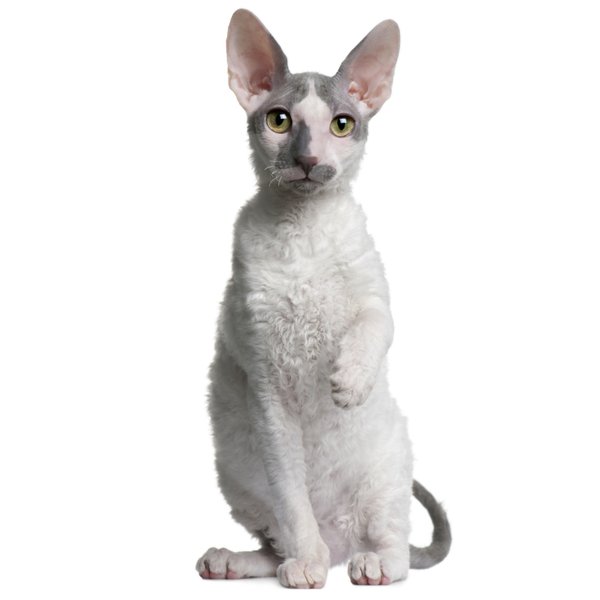
United Kingdom
Size : Small
Coat : Short
Registration : GCCF, TICA, CFA, FIFe
Vocality : High
Hypoallergenic : Yes
Grooming : Once a Week
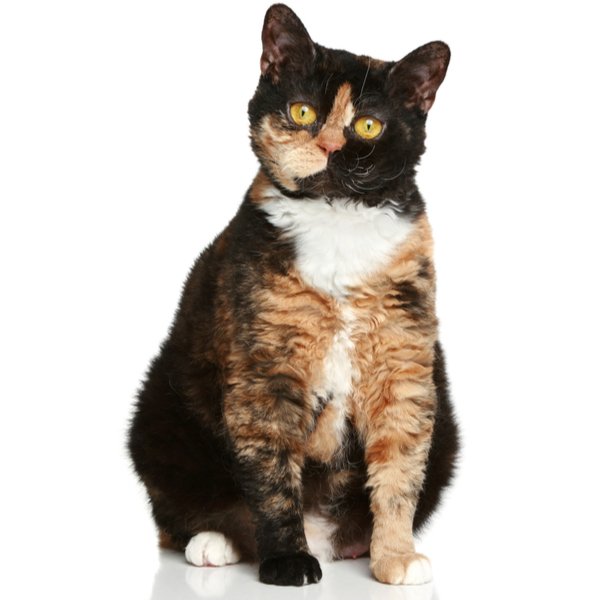
United States of America
Size : Medium
Coat : Short
Registration : GCCF, TICA, CFA, FIFe
Vocality : Low
Hypoallergenic : No
Grooming : Once a Week
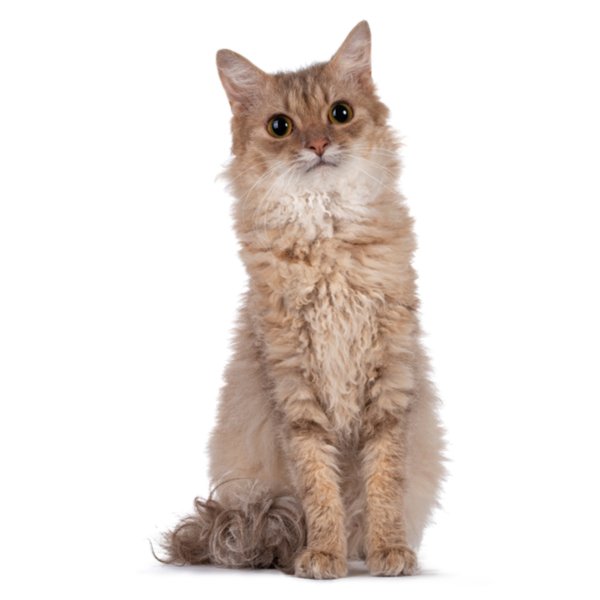
United States of America
Size : Small
Coat : Long
Registration : GCCF, TICA, CFA, FIFe
Vocality : Low
Hypoallergenic : Yes
Grooming : Twice a Week


Need some advice?
Whether you're a first time pet owner, an experienced pet owner, a new or long-time breeder, or just curious about pets, we've got you covered!
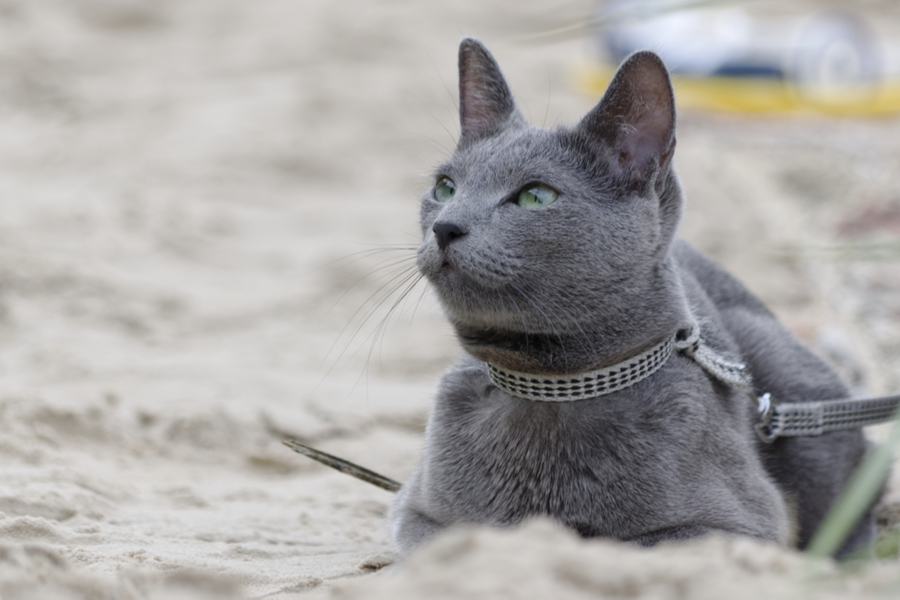
January 17, 2024
What Is The Personality Of Russian Blue Cats?
Russian Blue cats are most known for their distinctive shimmery blue-silver coat and piercing green eyes. However, this breed’s calm and gentle temperament is what makes them shine the most in the feline world.
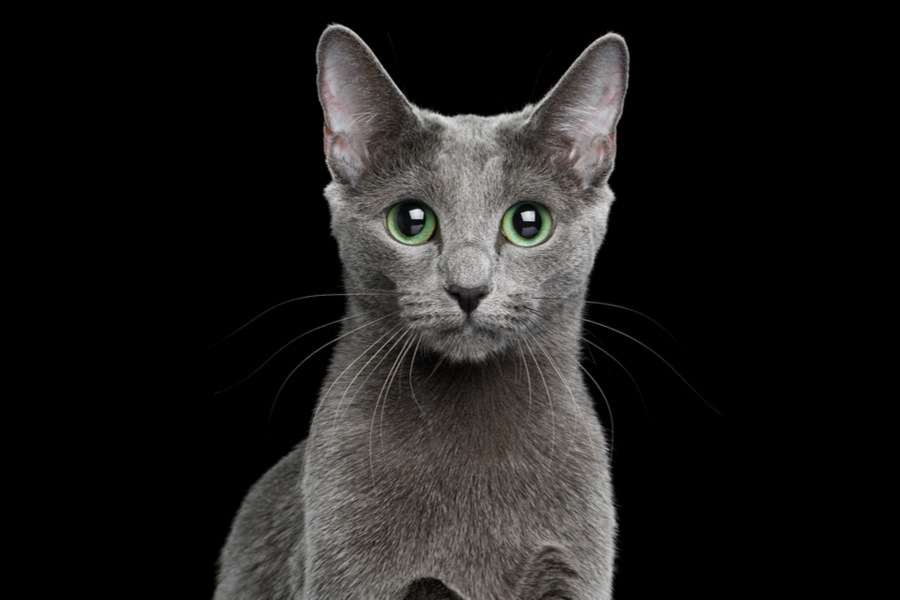
January 17, 2024
10 Facts About Russian Blue Cat Breed
Russian Blues are one of the most aesthetically stunning cat breeds, with a gorgeous plush silvery coat and vibrant green eyes. However, it’s not only their appearance that is beautiful; their nature is too.
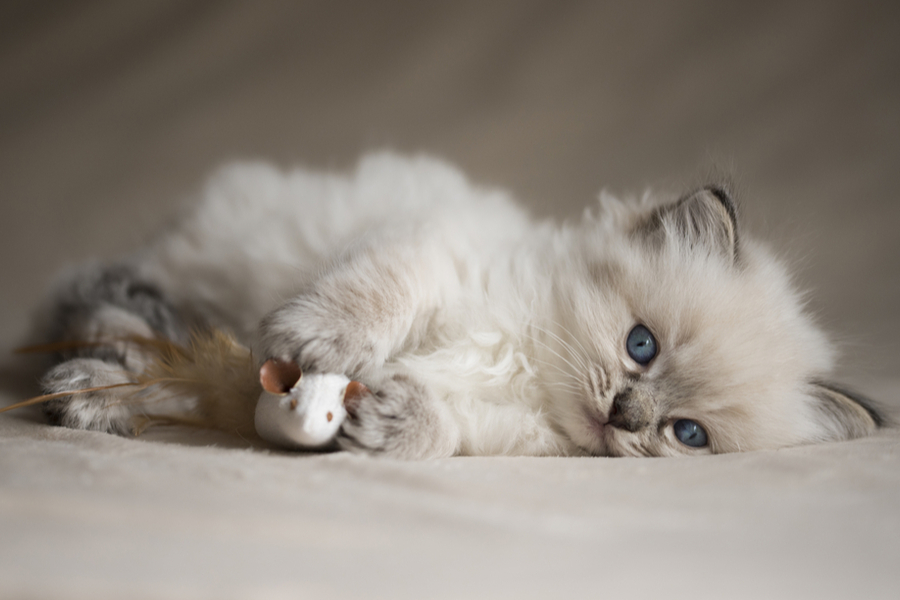
January 17, 2024
How To Choose The Right Cat Breed for You
Cats can make the most fantastic animal companions; they are adorable, friendly, and loving. However, not all felines are created equal. There are many different breeds, of which each has its unique personality traits.
Need some help?
Contact us to speak to our friendly advisor, who will gladly help you find your dream pet!



We are registered in England and Wales under registration number 12568840,
and our registered office is at 58-60 Kensington Church Street, W8 4DB London, England.
© 2023 The Pedigree Paws